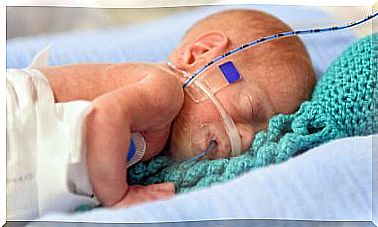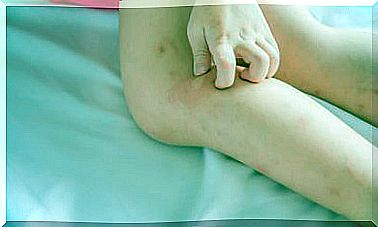How To Minimize Nausea During Pregnancy

Nausea during pregnancy affects more than half of all mothers. Normally, morning sickness appears in the early hours of the morning and gradually subsides as the day progresses. In the medical setting, morning sickness, when severe, is called hyperemesis gravidarum.
Morning sickness is perfectly normal due to increased estrogen levels, low blood sugar, and increased susceptibility to some odors. Sometimes morning sickness can be mild. However, at other times the pregnant mother may feel so bad that she feels the need to vomit.
Although morning sickness can be extremely unpleasant, it is rarely severe enough to cause metabolic disturbances. In most cases, morning sickness appears in the first trimester of pregnancy.
Tips to Reduce Nausea During Pregnancy
Here we see some tips that may be useful to reduce to the minimum the symptoms of nausea from the pregnancy , especially morning sickness.
Sleep and rest a lot : The pregnant woman should ensure that she gets a good night’s sleep by taking all possible measures to improve the quality of her sleep. In addition, it would be convenient to take a nap throughout the day and avoid moving after eating.

Getting out of bed slowly : To reduce nausea it is advisable to get out of bed slowly and without haste.
Avoid certain foods : Avoiding the intake of fatty and / or spicy foods and avoiding caffeine will also help reduce nausea.
Eat more but less : Always having food in the stomach will reduce the risk of experiencing nausea, or at least the symptoms are more likely to be mild. If the stomach is empty, the acids have nothing to work with, making nausea worse.
Avoid flickering your computer monitor : The rapid, almost imperceptible flickering of the computer monitor can trigger morning sickness. Some women are affected throughout the day.
Do exercise : Some pregnant women may find it difficult to move because they feel unwell. However, physical activity has been found to help improve symptoms of morning sickness in many women.
Drink a good amount of liquid : Being hydrated is essential for good health, and it is very important during pregnancy. Some women who have morning sickness may feel like they can’t tolerate fluids and drinking may be unpleasant. However, the more dehydrated they are, the more nauseous they will feel.

Take ginger : Studies have shown that ginger can help relieve nausea symptoms. You can take it in the form of cookies or bread, adding it to cold drinks or as an infusion.
Wear loose, comfortable clothing : Tight clothing can exacerbate nausea symptoms during pregnancy. Studies have found that nauseated pregnant mothers who switched from tight clothing to baggy clothing reported a significant decrease in symptoms, including their complete disappearance.
Smell fresh rosemary or lemon extract : The smell of fresh rosemary or lemon essential oil are very effective in preventing morning sickness during pregnancy.
Avoid triggers : By becoming more sensitive to smells, pregnant women may feel nauseous just smelling normal things, even pleasant ones, like perfumes. Also, there may be other triggers. For each woman they are different, so each one must analyze what they are to try to avoid them.
Take specific medications : There are some medications that can help reduce nausea during pregnancy, although they do not always work. But not just any drug. Consult with the gynecologist about this if you consider it necessary.
What happens when morning sickness gets complicated
When morning sickness becomes complicated and leads to excessive vomiting, it can lead to hyperemesis gravidarum, a condition that can lead to dehydration and malnutrition. A woman with hyperemesis gravidarum may weigh more than 5% less than before she became pregnant.
About one in three hundred pregnant women develop hyperemesis gravidarum. Generally, the problem does not persist beyond the 20th week of pregnancy. The doctor may recommend changes in diet, plenty of rest, and the use of specific medications. In severe cases, the patient may need intravenous fluids and nutrition.









